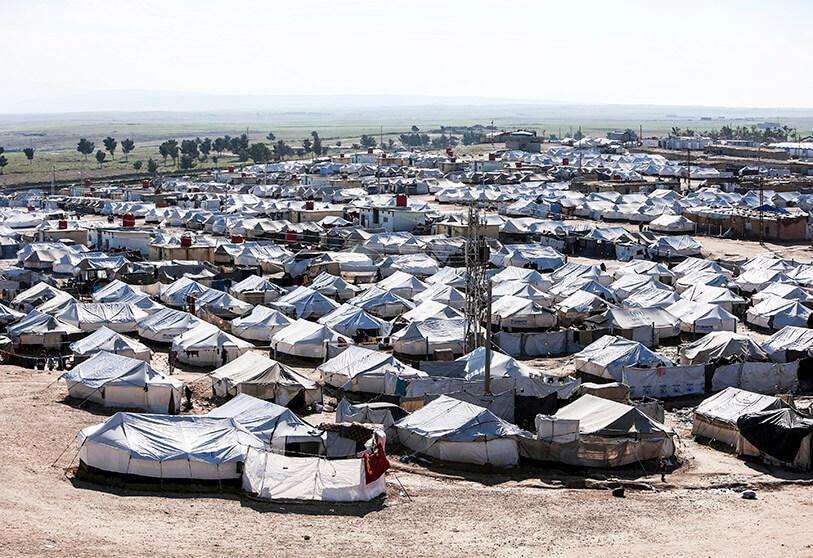Emirates provides COVID-19 vaccine doses and food aid to Syria

As part of the United Arab Emirates' (UAE) efforts to address the global coronavirus pandemic, the Emirates Red Crescent coordinated with the Syrian Red Crescent Organization to send a shipment of medical aid containing doses of COVID-19 vaccine to the Syrian people. The shipment aims to help frontline medical workers, the elderly and chronically ill, as well as displaced people in refugee camps.
The UAE Red Crescent also donated food aid, in coordination with the Syrian Red Crescent Organization, to meet the needs of the Syrian people before the start of the holy month of Ramadan. The efforts to provide doses of vaccines are aimed at assisting the Middle Eastern country's health sector, helping to curb the spread of the coronavirus and reduce its negative effects. The organization previously sent, in coordination with the Syrian Red Crescent, a 97.2 tonne shipment of medical aid to Syria, including medical supplies, personal protective equipment and testing kits, which enhanced the capabilities of medical teams and frontline workers.

The statement did not specify which vaccines were delivered, but the UAE has relied heavily on the Chinese state-backed Sinopharm vaccine for its rapid inoculation campaign. The country previously sent shipments of Sinopharm to Egypt, a key Arab ally, and to the Indian Ocean island nation of the Seychelles.
Syria is experiencing a sharp rise in cases of COVID-19. Last week, Damascus ordered schools and universities closed for two weeks to try to contain transmission. Ten years of civil war have ravaged the health system and infrastructure. Syria has recorded nearly 20,000 cases of coronavirus and 1,300 deaths. However, the real figures are believed to be much higher given the shortage of tests.
UN Secretary-General António Guterres highlighted the cumulative effect of ten years of devastation on the current situation in Syria: "Syria's economy has been devastated and now the impact of COVID-19 has made things worse. Nearly half of all families have lost their source of income. Nine out of ten Syrians live in poverty". This issue was raised in the joint statement by the cluster of humanitarian agencies in Syria: "Syrians are facing record levels of food insecurity and declining socio-economic conditions. Needs have increased dramatically over the past year. More than 13 million people are in need of humanitarian assistance inside Syria".
Wars usually come to an end when there is a clear victor, or when the parties to the conflict are crushed to the point where they agree to head to the negotiating table. In Syria, neither outcome seems likely in the foreseeable future: numerous foreign powers have become involved in the fighting and claim a stake in its outcome.

Syria's relations with other Arab states have been severely damaged by the Syrian civil war, but the UAE is leading efforts to repair ties with the Syrian government of President Bashar al-Assad. Syria was suspended from the Arab League in 2011 at the start of the uprising against al-Assad following the government's violent crackdown on protests. Several Arab states, including the UAE, originally supported Syrian rebel groups in the war. In late 2018, the UAE reopened its embassy in Damascus, the first to do so since Arab countries declared a boycott of Syria at the outbreak of war in 2011. The Emirati representative is a chargé d'affaires, but the reopening itself is a sign that closer relations may be forthcoming.
Since then, Abu Dhabi has shifted its stance to one of rapprochement with Damascus. Last month, UAE foreign minister Sheikh Abdullah bin Zayed al-Nahyan called for international cooperation with al-Assad and said US sanctions on Syria "make the matter more difficult". The UAE, as well as its ally Egypt, is now also calling for Syria to be readmitted to the Arab League.
Syria needs help because of the ongoing war, the devastating economic situation and the harsh US sanctions. The UN believes that COVID-19 is much more widespread in the country than the government lets on. Millions of Syrians also lack access to sufficient food, according to the UN.








